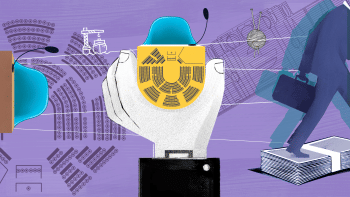Leave no room for conflicts of interest

The story of how former DSCC Mayor Sheikh Fazle Noor Taposh allegedly exploited his office and clout to advance his business interests should serve as a cautionary tale not just for mayors and other public office holders, present or future, but also for the interim government so that no such unethical practices ever occur again. According to a report by Prothom Alo, Taposh, after becoming mayor in 2020, directed DSCC's substantial fixed deposits and financial dealings to Modhumoti Bank, which he helped establish and continues to serve as a director. By September 2023, Modhumoti Bank held 46 percent of DSCC's total fixed deposits. Additionally, five out of seven ongoing projects of DSCC had their funds deposited in the same bank. In total, "Taposh's bank", as it is generally known, held a total of Tk 966 crore from DSCC's fixed deposits and project funds.
Moreover, the mayor, who is now absconding after the fall of the Awami League government, also redirected his office's financial transactions from other banks to Modhumoti, and even established six of its booths within DSCC offices, while depriving other banks. It should be mentioned that Taposh's actions were enabled by Awami League that allowed 50 percent of government agency funds to be kept in the private banks approved in 2013, including Modhumoti, based on political considerations. The whole episode is another reminder of how the regime blatantly abused power and allowed conflicts of interest to corrupt governance.
The Taposh case is just one of many that occurred during its tenure. Over the years, we have seen how numerous Awami League leaders, including MPs, owned or had stakes in businesses that often benefited from government contracts, policies, or regulations that they were in charge of overseeing. In many cases, they used their positions to secure favourable conditions for their enterprises, bypassing competitive bidding processes. This merging of business interests with power led to widespread corruption and misallocation of public funds. The result was a system where the line between public service and private gain became increasingly blurred.
As we turn a new chapter in our nation's history, we must ensure that future administrations do not fall into the same pattern. For that, the interim government must take concreate steps. For example, there is a need for strict regulations to ensure that elected public representatives cannot hold directorships in private companies while in office. Their finances should also be subjected to regular scrutiny. Moreover, an independent oversight body should be formed under a new law to prevent any potential conflicts of interest in public offices.

 For all latest news, follow The Daily Star's Google News channel.
For all latest news, follow The Daily Star's Google News channel. 









Comments